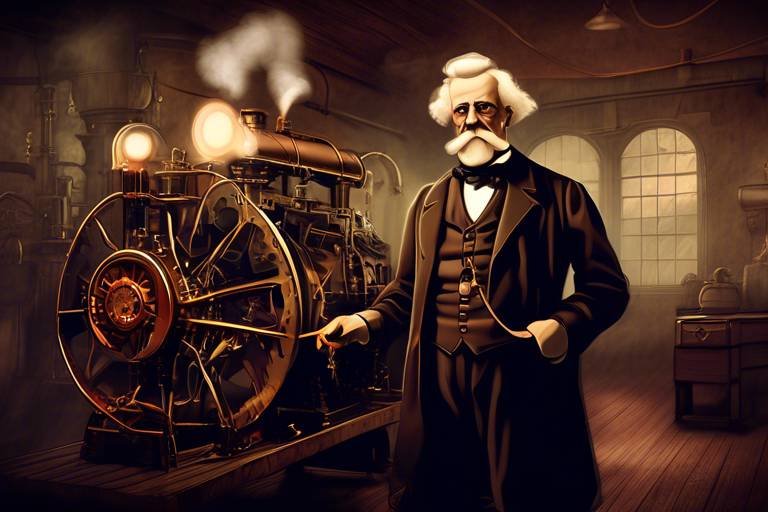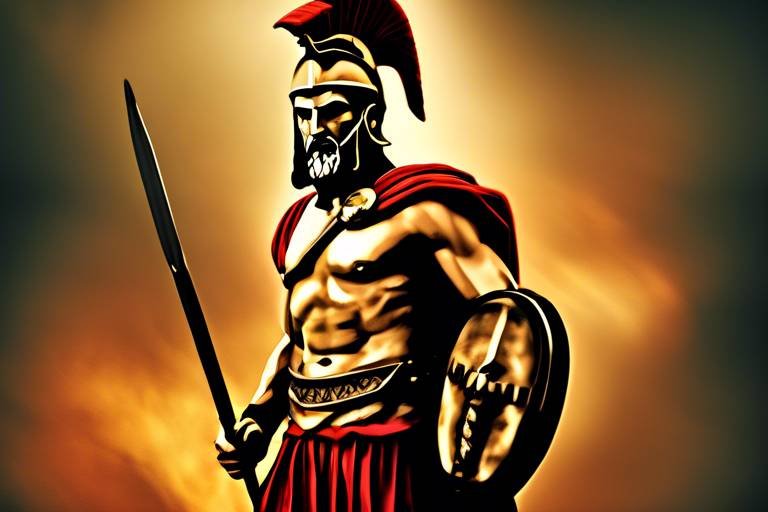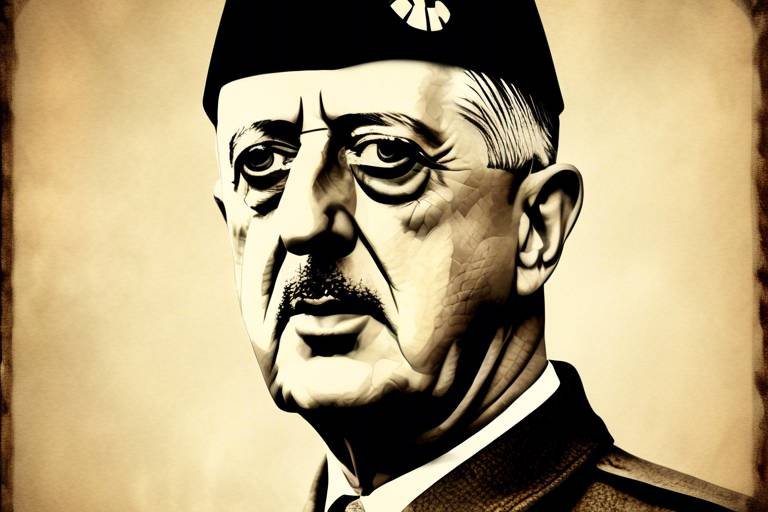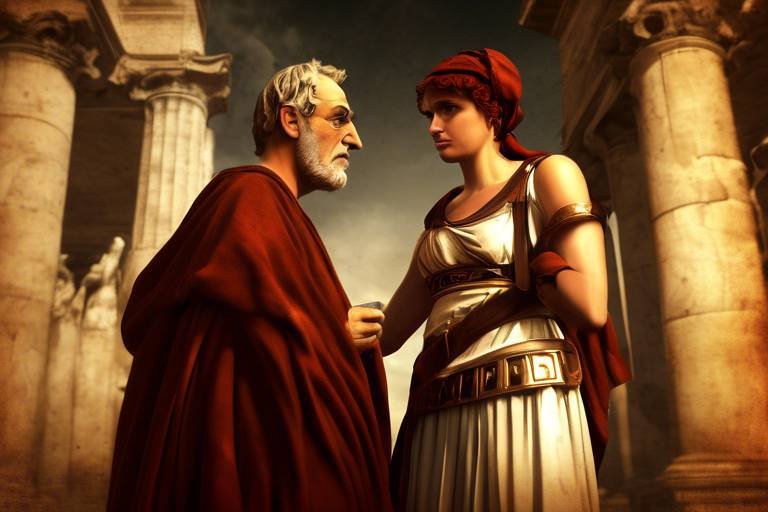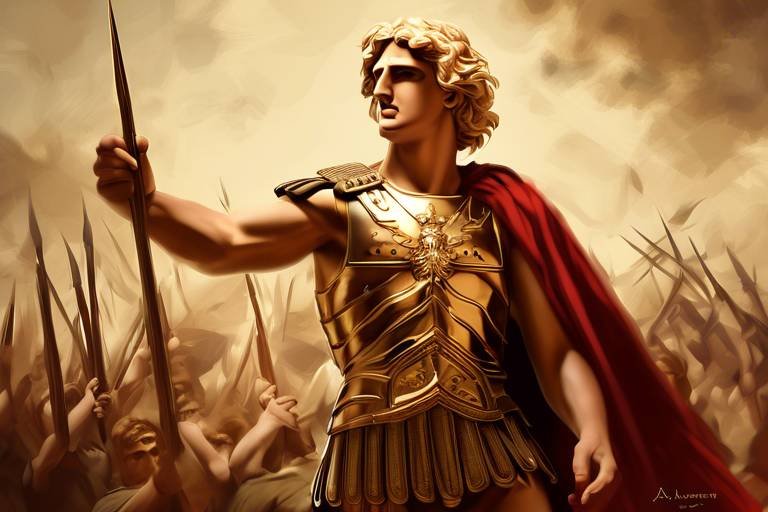Tiberius: The Emperor Who Built a Dynasty
Tiberius, the second Roman emperor, is a figure shrouded in complexity and intrigue. Known for his pivotal role in establishing the Julio-Claudian dynasty, Tiberius left an indelible mark on Roman history through his reign. His journey from a young man navigating the intricacies of Roman politics to a powerful emperor who shaped the empire's future is a tale of ambition, power, and legacy.
Born Tiberius Claudius Nero, he was raised in the shadow of his stepfather Augustus, the first Roman emperor. Despite his noble lineage, Tiberius's path to power was fraught with challenges and uncertainties. His military prowess and strategic acumen propelled him to the forefront of Roman politics, ultimately leading to his ascension to the imperial throne following Augustus's death.
As emperor, Tiberius implemented a series of policies aimed at consolidating his rule and maintaining stability within the empire. His governance style was marked by a blend of pragmatism and authoritarianism, earning him both praise and criticism from his subjects and contemporaries.
The relationship between Tiberius and Augustus was a complex one, defined by a mix of respect, rivalry, and mentorship. Securing his succession and navigating the intricate web of Roman politics proved to be a formidable challenge for Tiberius, testing his diplomatic skills and political acumen.
On the military front, Tiberius embarked on ambitious campaigns to expand the borders of the Roman Empire, leading conquests and subjugating territories in the name of Roman supremacy. His military achievements solidified his reputation as a formidable commander and further cemented his authority as emperor.
Amidst the grandeur of military conquests, Tiberius also focused on domestic affairs and the administration of the empire. His approach to governance was marked by a blend of centralized authority and delegation, ensuring the efficient management of internal affairs and the well-being of his subjects.
The legacy of Tiberius's reign reverberated throughout Roman history, influencing the policies and decisions of subsequent emperors. His imprint on the Julio-Claudian dynasty and the broader trajectory of Roman governance endured long after his death, shaping the course of the empire for generations to come.
Despite his accomplishments, Tiberius's public image and historical perception have been a subject of debate and scrutiny. Over time, interpretations of his reign have evolved, painting a nuanced portrait of a ruler whose legacy continues to spark discussion and analysis among historians and scholars.
In his later years, Tiberius retreated from the political turmoil of Rome, seeking solace and seclusion on the island of Capri. The events surrounding his retirement and the subsequent succession by his infamous nephew Caligula marked a tumultuous chapter in Roman history, signaling the end of an era and the beginning of a new reign.

Early Life and Rise to Power
Exploring the life and reign of Tiberius, the second Roman emperor, known for his complex personality and the foundation he laid for the Julio-Claudian dynasty.
Before Tiberius became the formidable emperor of Rome, his early life was marked by significant events that shaped his future. Born in 42 BC, Tiberius was the son of Tiberius Claudius Nero and Livia Drusilla. His mother's remarriage to Augustus, the first Roman emperor, played a crucial role in his rise to power. Despite his noble lineage, Tiberius faced challenges in his youth, including his father's exile and his own military service under Augustus.
Through his military prowess and strategic acumen, Tiberius gradually ascended the ranks of the Roman army, earning the respect of his soldiers and commanders. His pivotal role in quelling revolts and expanding the empire's borders bolstered his reputation as a capable leader. Following the death of Augustus in 14 AD, Tiberius succeeded him as the emperor of Rome, marking the beginning of his transformative reign.
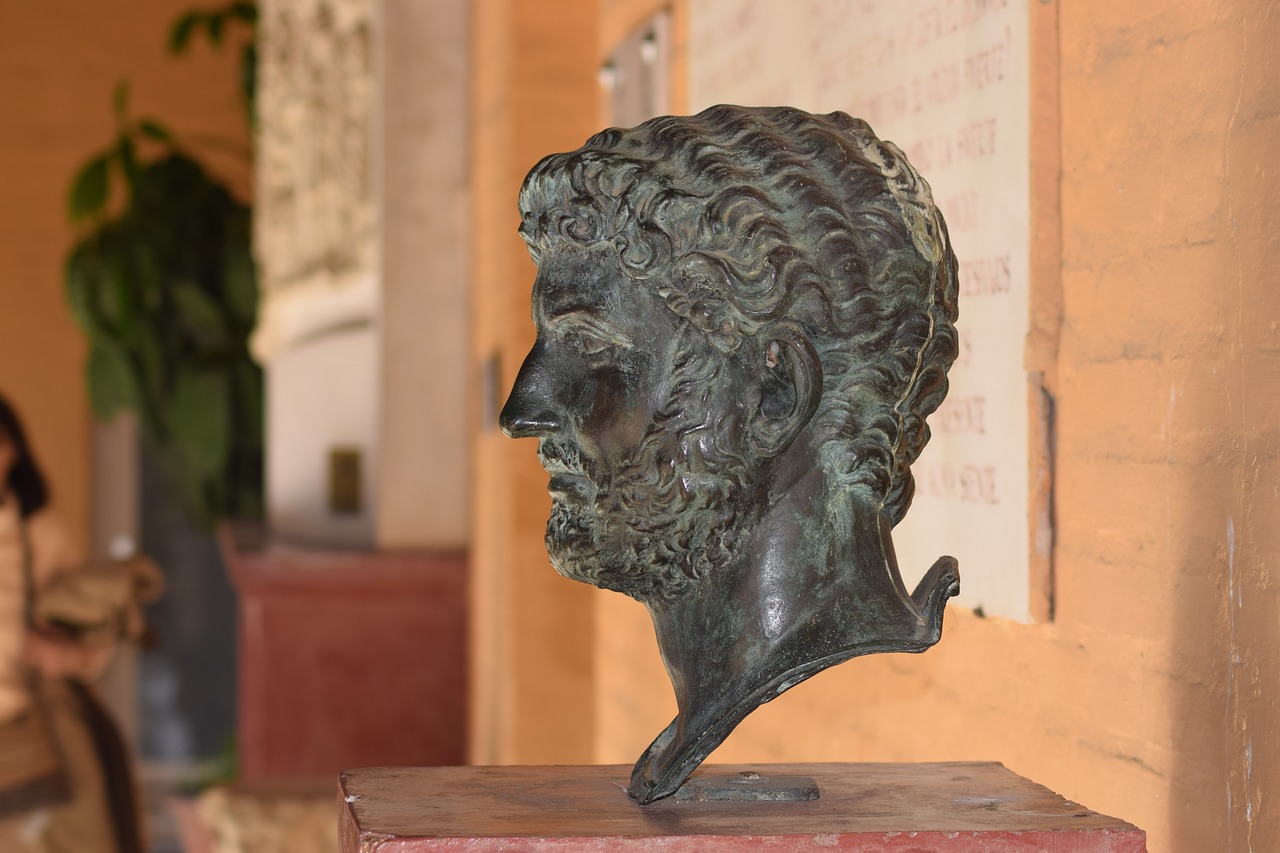
Reign and Policies
Exploring the life and reign of Tiberius, the second Roman emperor, known for his complex personality and the foundation he laid for the Julio-Claudian dynasty.
During his reign, Tiberius implemented various policies that shaped the governance of the Roman Empire. Known for his cautious and sometimes secretive nature, Tiberius focused on maintaining stability and order within the empire. One of his key policies was the enforcement of treason laws to protect the state from perceived threats. This approach, although controversial, aimed to safeguard the empire from internal dissent and external enemies.
Furthermore, Tiberius reformed the administration of the provinces, aiming to improve efficiency and reduce corruption. His policies regarding taxation and public finances were aimed at ensuring the financial stability of the empire. By centralizing authority and closely monitoring provincial governors, Tiberius sought to strengthen the imperial administration and maintain control over the vast territories under Roman rule.
In terms of foreign policy, Tiberius focused on consolidating the borders of the empire rather than pursuing aggressive expansion. He sought to maintain a balance of power with neighboring states and avoid unnecessary conflicts that could strain the resources of the empire. Tiberius's approach to military campaigns was strategic, emphasizing defensive measures and diplomatic solutions to secure the borders and protect Roman interests.
Additionally, Tiberius implemented social reforms aimed at improving the lives of Roman citizens, particularly those living in the urban centers. He sponsored public works projects, supported infrastructure development, and promoted cultural initiatives to enhance the quality of life in the empire. Tiberius's policies in this regard aimed to foster stability, prosperity, and social cohesion among the diverse population of the Roman world.
Overall, Tiberius's reign was characterized by a blend of pragmatism, caution, and a focus on maintaining the stability and prosperity of the Roman Empire. His policies, although controversial at times, aimed to secure the long-term interests of the state and ensure the continuity of the Julio-Claudian dynasty.
1. What was Tiberius's relationship with Augustus like?
2. How did Tiberius handle succession and ensure a smooth transition of power?
3. What were the key military campaigns and conquests during Tiberius's reign?
4. How did Tiberius's policies impact the daily lives of Roman citizens?
5. What was the legacy of Tiberius's reign on subsequent emperors and Roman history?
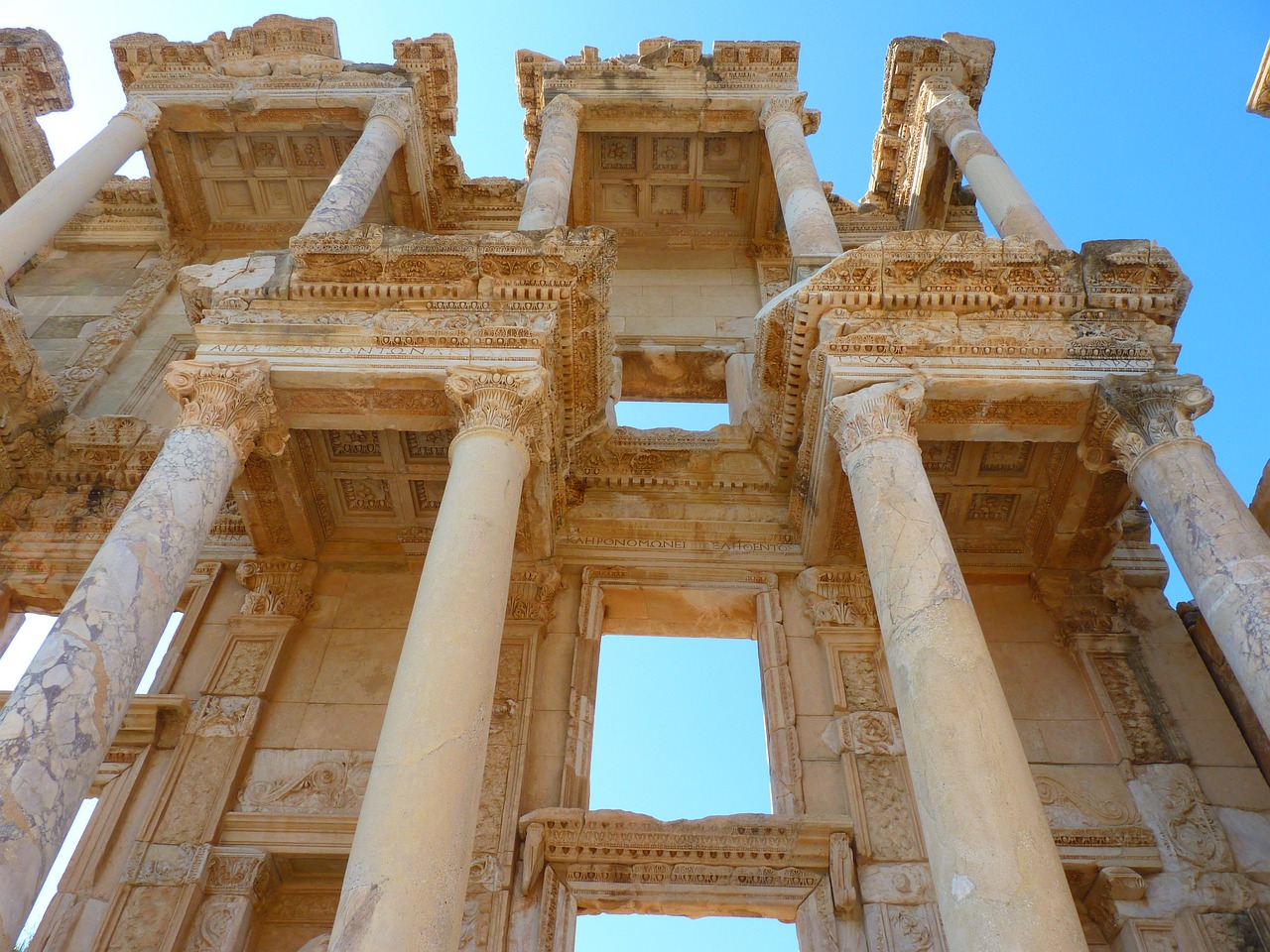
Relationship with Augustus and Succession
Exploring the relationship between Tiberius and Augustus sheds light on the intricate dynamics of power and succession in ancient Rome. Tiberius, originally named Tiberius Claudius Nero, was not the natural heir to Augustus. However, through a series of adoptions and political maneuvers, Augustus eventually designated Tiberius as his successor. This decision was not without controversy, as Tiberius was known for his reserved and often aloof demeanor, contrasting with the charismatic and beloved Augustus.
Despite being chosen as the heir, Tiberius's relationship with Augustus was complex. While Augustus recognized Tiberius's military prowess and administrative skills, there was an underlying tension between the two. Augustus, the revered founder of the Roman Empire, struggled to fully trust Tiberius, leading to a sense of unease in their interactions. This strained relationship was further exacerbated by Tiberius's own insecurities and suspicions, as he navigated the intricate web of Roman politics.
Upon Augustus's death in 14 AD, Tiberius ascended to the imperial throne, facing the daunting task of filling the shoes of his illustrious predecessor. The transition of power was not seamless, as Tiberius had to navigate political rivalries and factions vying for influence. Despite his initial reluctance to assume the role of emperor, Tiberius eventually embraced his position, albeit with a sense of detachment that would define his reign.
The succession of Tiberius by Augustus marked a pivotal moment in Roman history, signaling a shift in leadership styles and governance. Tiberius's rule was marked by a sense of pragmatism and caution, a stark contrast to Augustus's visionary and ambitious approach. This difference in leadership styles would shape the course of the Julio-Claudian dynasty and set the stage for future emperors to come.

Military Campaigns and Expansion
During his reign, Tiberius was actively engaged in various military campaigns and expansion efforts to strengthen and expand the borders of the Roman Empire. One of his significant military achievements was the suppression of revolts in Pannonia and Dalmatia, regions that posed a threat to Roman stability. Tiberius led successful campaigns to quell these uprisings, showcasing his strategic military prowess and ability to maintain control over the empire's frontiers.
Furthermore, Tiberius focused on securing the eastern borders of the empire by conducting military operations in Armenia and the Germanic territories. His campaigns in these regions aimed to assert Roman dominance and deter potential threats from neighboring powers. Through calculated military tactics and diplomatic maneuvers, Tiberius effectively expanded Roman influence in these key strategic areas, solidifying the empire's presence in the East and along the Rhine frontier.
Additionally, Tiberius was instrumental in overseeing the Roman conquest of Raetia and Noricum, further extending the empire's reach into the Alpine regions. These military campaigns not only demonstrated Tiberius's commitment to territorial expansion but also showcased his dedication to protecting Roman interests and maintaining control over vital trade routes and resources.
Moreover, Tiberius's military endeavors in Illyricum and Thrace underscored his proactive approach to securing the empire's borders and consolidating Roman power in the Balkan Peninsula. By launching successful military campaigns in these regions, Tiberius effectively expanded Roman territory and reinforced the empire's military presence in strategic areas, ensuring stability and security along the eastern frontiers.
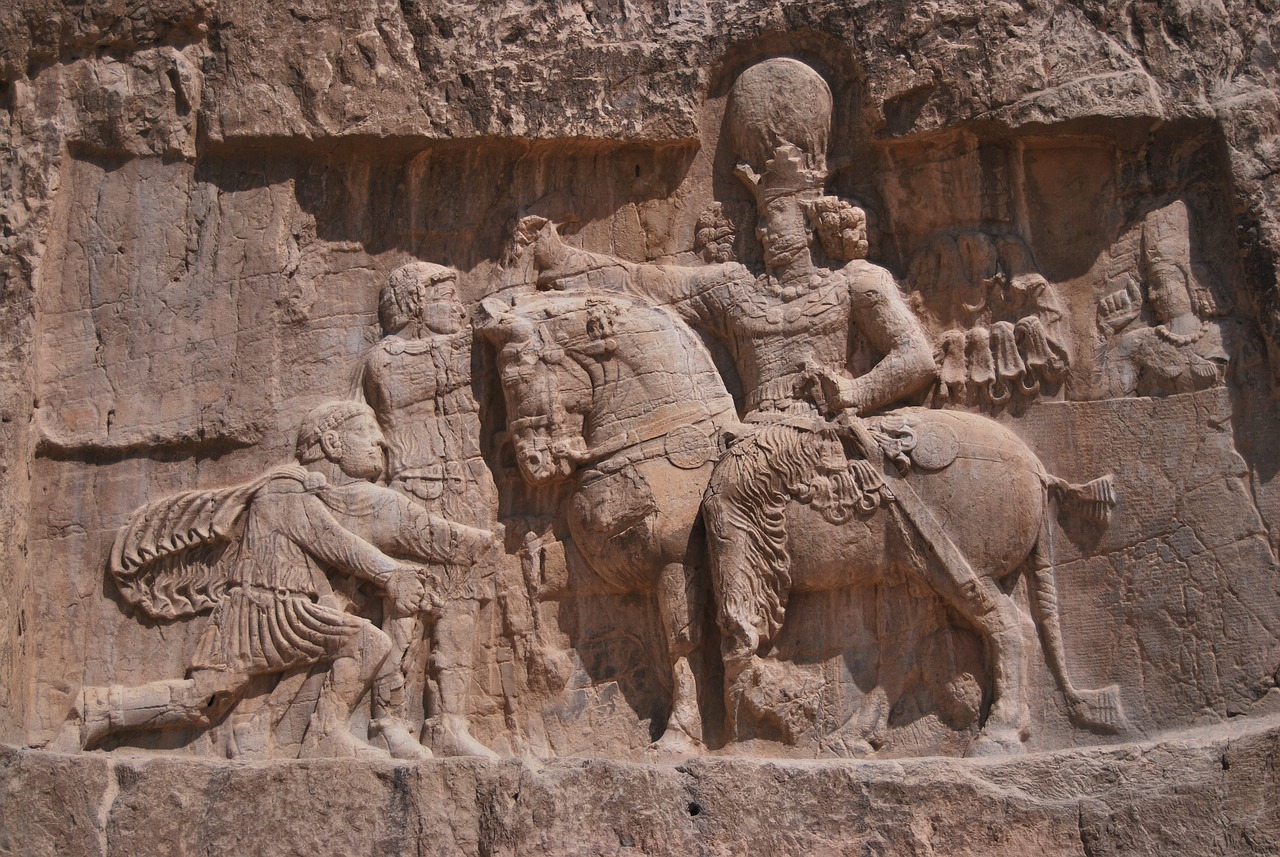
Domestic Affairs and Administration
When it comes to Tiberius's approach to domestic affairs and administration, his reign was marked by a mix of challenges and achievements. Tiberius was known for his meticulous attention to the internal workings of the empire, striving to maintain stability and order within the vast Roman territories.
One of the key aspects of Tiberius's domestic policy was his focus on financial reforms and administrative efficiency. He implemented measures to streamline taxation systems, improve infrastructure, and enhance the overall governance structure of the empire. By establishing clear guidelines and standards for governance, Tiberius aimed to ensure that the empire ran smoothly and effectively.
Moreover, Tiberius placed a strong emphasis on maintaining law and order throughout the Roman territories. He enacted laws to combat corruption, uphold justice, and protect the rights of citizens. Tiberius's commitment to upholding the rule of law helped to instill a sense of security and stability among the population.
Furthermore, Tiberius paid close attention to the management of provincial administration. He appointed capable governors to oversee the various provinces, ensuring that they adhered to imperial directives and maintained order within their jurisdictions. By delegating authority to competent officials, Tiberius sought to decentralize power while maintaining central control over the empire.
In addition to his administrative reforms, Tiberius also focused on social welfare and public works projects. He initiated programs to provide assistance to the poor, support infrastructure development, and promote cultural initiatives. Tiberius's efforts to improve the quality of life for Roman citizens contributed to a sense of prosperity and well-being throughout the empire.
Overall, Tiberius's approach to domestic affairs and administration was characterized by a blend of pragmatism and idealism. His commitment to governance, law enforcement, and social welfare left a lasting impact on the Roman Empire, shaping its internal dynamics and setting the stage for future rulers to follow.
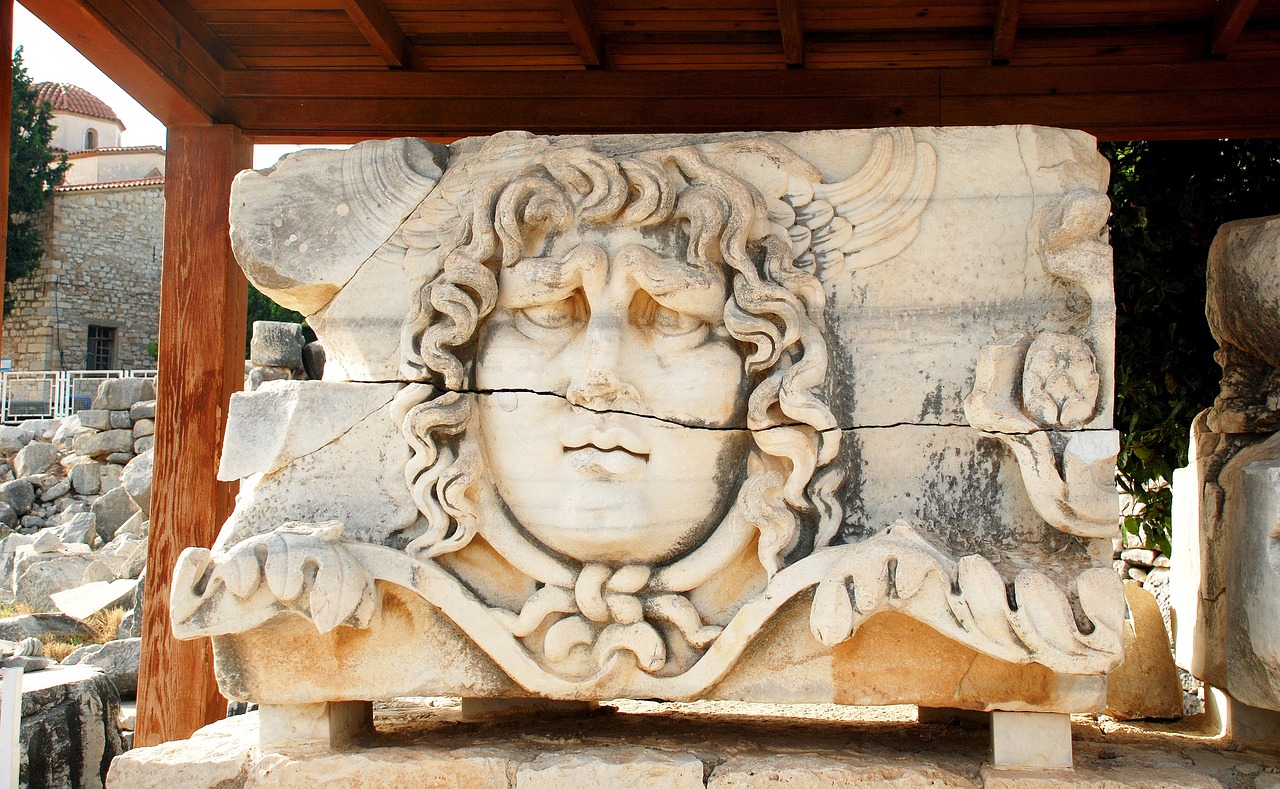
Legacy and Impact
When it comes to the legacy and impact of Tiberius, the second Roman emperor, one cannot underestimate the profound influence he had on shaping the future of the Roman Empire. Tiberius's reign marked a pivotal moment in Roman history, as he not only continued the work of his predecessor, Augustus, but also set the stage for the Julio-Claudian dynasty to flourish.
One of the key aspects of Tiberius's legacy lies in his governance style, which was characterized by a mix of pragmatism and authoritarianism. During his rule, Tiberius implemented various policies aimed at maintaining stability within the empire and consolidating his power. His emphasis on maintaining the status quo and upholding the traditions of the Roman state earned him both admirers and critics.
Furthermore, Tiberius's military campaigns and efforts to expand the Roman Empire left a lasting impact on the territories under Roman control. His conquests in regions such as Pannonia, Dalmatia, and Thrace not only bolstered the empire's borders but also solidified Rome's dominance in the Mediterranean world. Tiberius's military prowess and strategic acumen were instrumental in securing Rome's position as a formidable superpower.
In terms of domestic affairs and administration, Tiberius's approach was marked by a focus on efficiency and centralization of power. He implemented reforms aimed at streamlining the bureaucracy, improving infrastructure, and enhancing the overall governance of the empire. Tiberius's efforts to maintain law and order within the empire laid the foundation for future emperors to build upon.
Moreover, Tiberius's legacy extended beyond his reign, influencing subsequent emperors and shaping the course of Roman history for years to come. His complex personality, political acumen, and military achievements served as a template for future rulers, guiding their actions and decisions. The Julio-Claudian dynasty, which Tiberius helped establish, would go on to produce some of the most iconic figures in Roman history.
Overall, the legacy and impact of Tiberius cannot be understated. His contributions to the Roman Empire, both in terms of governance and military conquests, reverberated throughout the centuries, leaving an indelible mark on the annals of history.

Public Image and Historical Perception
When it comes to public image and historical perception, Tiberius is a figure shrouded in controversy and mystery. During his reign, he was often portrayed as a reclusive and paranoid ruler, distant from the people and embroiled in political intrigues. The ancient sources paint a complex picture of Tiberius, depicting him as a man torn between his duty as emperor and his personal struggles.
Historians have grappled with the enigma of Tiberius, trying to separate fact from fiction in the accounts left behind by his contemporaries. Some view him as a capable administrator who maintained stability in a tumultuous period, while others condemn him as a tyrant who ruled through fear and suspicion.
One of the most enduring aspects of Tiberius's historical perception is his strained relationship with the Roman Senate and the elite classes. His efforts to curb corruption and restore discipline within the government were met with resistance and resentment, leading to a deterioration in his public image.
Over time, Tiberius's reputation has fluctuated, influenced by the biases of later historians and the political climate of different eras. Some modern scholars have sought to reassess his legacy, highlighting his contributions to Roman law and administration, as well as his role in shaping the early imperial system.
Despite the conflicting views on Tiberius, one thing remains clear: his reign marked a pivotal moment in Roman history, setting the stage for the rule of future emperors and the evolution of the empire. The public image of Tiberius continues to be a subject of debate and interpretation, reflecting the complexities of power and perception in the ancient world.
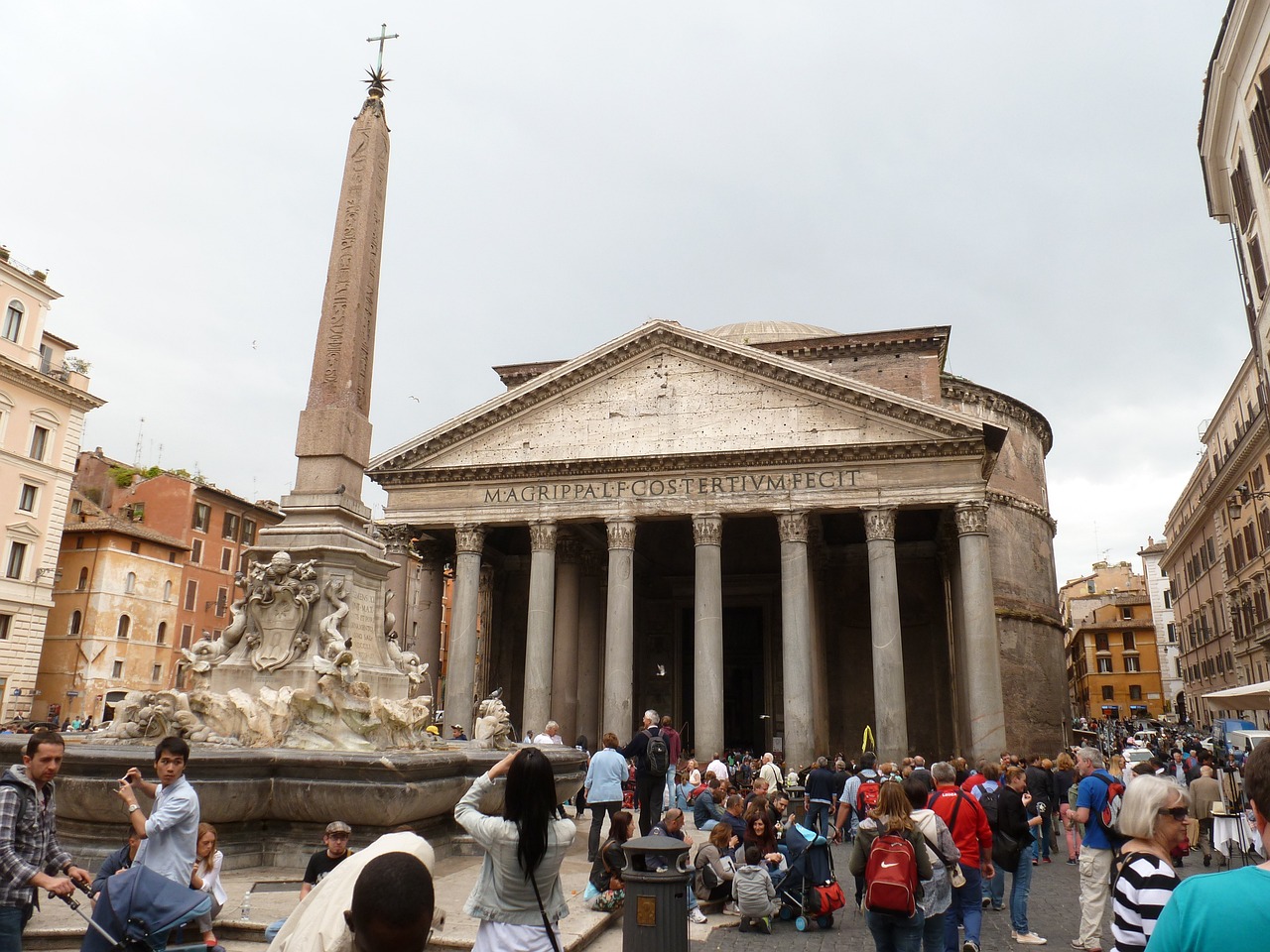
Retirement and Succession
After years of ruling the Roman Empire, Tiberius made a surprising decision to retire from public life and withdraw to the island of Capri. This move marked a significant shift in the political landscape of Rome, as the emperor's absence left a void in leadership that would soon be filled by his successor, Caligula. Tiberius's retirement to Capri was shrouded in mystery and speculation, with rumors swirling about his activities on the secluded island.
During his time in retirement, Tiberius continued to exert influence over Roman politics, despite being physically removed from the capital. His relationship with Caligula, his chosen heir, became increasingly strained as rumors of conspiracy and betrayal circulated among the Roman elite. The succession of Caligula to the imperial throne was met with a mix of relief and apprehension, as the young emperor's erratic behavior and despotic tendencies soon became apparent.
As Tiberius's reign came to an end with his withdrawal from Rome, the transition of power to Caligula marked a turning point in Roman history. The legacy of Tiberius's rule would be overshadowed by the tumultuous reign of his successor, whose excesses and cruelty would further tarnish the reputation of the Julio-Claudian dynasty. The retirement and succession of Tiberius symbolized the fragility of power and the unpredictable nature of leadership in ancient Rome.
Frequently Asked Questions
- Who was Tiberius?
Tiberius was the second Roman emperor, succeeding Augustus and known for his complex personality and the foundation he laid for the Julio-Claudian dynasty.
- What were Tiberius's early life and rise to power like?
Tiberius had a military upbringing, a successful military career, and ascended to the imperial throne after Augustus's death, facing various challenges along the way.
- How did Tiberius govern and what were his policies?
Tiberius had a unique governance style, made significant political decisions, and implemented various policies during his rule that shaped the empire.
- What was Tiberius's relationship with Augustus and how did succession occur?
Tiberius had a complicated relationship with Augustus, his predecessor and mentor, and securing succession was a challenging task for him.
- What were Tiberius's military campaigns and efforts for expansion?
Tiberius engaged in military campaigns, led conquests, and worked towards expanding the Roman Empire during his reign, leaving a mark on its territories.
- How did Tiberius handle domestic affairs and administration?
Tiberius had a specific approach to domestic issues, managed the empire's administration, and dealt with internal affairs in a strategic manner.
- What is the legacy of Tiberius and his impact on Roman history?
Tiberius's reign left a lasting legacy, influencing subsequent emperors and impacting Roman history in significant ways that are still studied today.
- How was Tiberius perceived historically and what was his public image?
Tiberius's historical perception has evolved over time, with varying views from contemporaries and historians shaping his public image and reputation.
- What happened during Tiberius's retirement and succession by Caligula?
Tiberius withdrew from Rome, retired to Capri, and the events surrounding his succession by Caligula marked a significant transition in Roman leadership.




